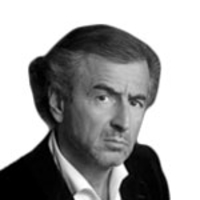Watching Mikhail Khodorkovsky, the former oligarch whom Vladimir Putin pardoned a few days before Christmas, take his first steps as a free man and hearing him utter such cautious and oddly conciliatory words, one could not help but think back nearly four decades to the superb and resounding arrival in Zurich of scientist Vladimir Bukovsky in December 1976. Having been exchanged for a Chilean communist leader and asked if he had anything to say on the occasion of Leonid Brezhnev’s 70th birthday, Bukovsky, in a phrase that spread around the world because it encapsulated a whole chunk of history, proposed that the real coup would have been to exchange Brezhnev for Pinochet.
Or to Leonid Plyushch, freed the same year, who, despite detention in psychiatric hospitals where he was deadened by massive daily doses of insulin and haloperidol, assaulted with electroshocks, broken, and all but trepanned by the Doctor Strangeloves of the KGB, had the presence of mind to declare, when asked to “choose his camp,” that he was in the camp neither of the left nor the right, though he had been in a concentration camp.
To Andrei Sakharov, of course, uncompromising even after multiple hunger strikes, an interminable wait, and internal exile in Gorky.
To Iosif Begun and Natan Sharansky, defiant to the end, rejecting any accommodation, victorious after everyone thought they were beaten.
To Natalya Gorbanevskaya, the poetess the world lost in November, who, in the midst of the terror of 1968, dared to demonstrate, virtually alone, in Red Square.
It is hard not to think of all those dissidents whose names are now forgotten but whose first words upon arrival in the West, whose eloquent silences, whose bitter or glacial ironies were like claps of thunder, the effects of which—the aftershocks and echoes—could be heard from one end to the other of the two worlds.
Does the low profile assumed by the former head of Yukos mean that he entered into a secret agreement with his jailer?
Did he understand that he would now have to live with a sword—not of Damocles but of polonium—hanging over his head?
Had ten years of detention quelled the combativeness that had allowed him, at the height of both men’s power, to defy Vladimir Putin?
Was Shalamov right when he said to Solzhenitsyn that there was nothing to be gained, absolutely nothing, by spending time in camps, no elevation of the soul, no steeling, and no amplification of courage?
Or is Khodorkovsky simply a different type of man? Another type altogether, forged from a different metal, more businessman than dissident, more cynic than militant? A big cat who has lost his battle? A chess master who has lost a match and whose sense of fair play now prevents him from crying about an unsuccessful gambit?
Or are we like those supporters of the French officer, Alfred Dreyfus, who, when their hero returned from Devil’s Island, found him “disappointing?” Might we have made the mistake of idealizing someone who, in the end, proves to be rather ordinary and who, now that he has escaped from hell, may have no other plan than to spend the rest of his life—why not?—enjoying what remains of his fortune in the company of his family?
All partly true, in all probability.
Each of these hypotheses plausibly explains the strange restraint of this political prisoner of whom so much was expected but whose first words as a free man were that his release (which was followed immediately by that of two members of Pussy Riot) suggested that Putin’s power had become “more humane.”
But there is something else at work here.
There is another explanation that depends not on the quality of the man or on the strength of his character but rather on the difference between two situations and two eras.
I am old enough to remember Brezhnev and the hierarchs of the Kremlin in the dissident era.
I remember their puffy faces, their enormous bodies encased in overcoats as they watched parades from balconies overlooking Red Square.
I can picture them arriving for meetings in the West hardly able to stand, as drugged as their victims, trailed by mobile hospitals designed to respond to the slightest sign of a medical problem.
And if I compare them, if I place those leaden men next to postmodern Putin, all fire and flame, flaunting his animal health, racking up flagrant diplomatic successes, from Syria to Iran to Ukraine, and pushing self-importance to the point of offering, between Checkpoint Charlie and the Glienicke Bridge, a cost-free remake of one of the great scenes of that Cold War that we supposedly won, I can only conclude that there is to be seen in that comparison the vast gulf separating one regime in its death agony from another at the dawn of its terrible reign.
Yesterday, we believed the Soviet system to be unshakeable, whereas the dissidents knew its days were numbered.
Today, we believe Putinism to be a fragile colossus with feet of clay, undermined by corruption, a shrinking population, and poverty. Wrong, Khodorkovsky is telling us, behind his mechanical and enigmatic smile. It would be a serious error, that smile is saying, to underestimate a fearsome adversary with his best days ahead of him.
In which case he, Khodorkovsky, would be a dissident of the third kind, one of a new era whose caution reflects the violence of the state of things in Russia: a tenacious and patient opponent, one who is, like Yahweh in biblical verses Khodorkovsky knows well, slow to anger, one from whom we surely have not heard the last.
Translated by Steven B. Kennedy



